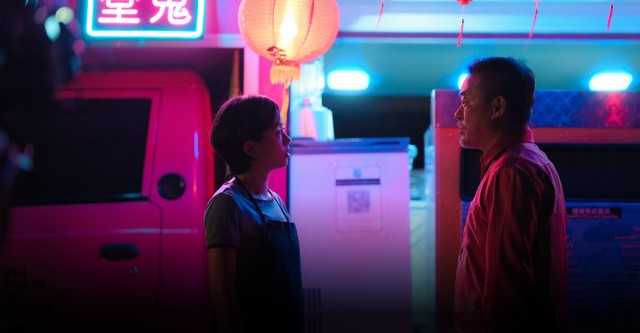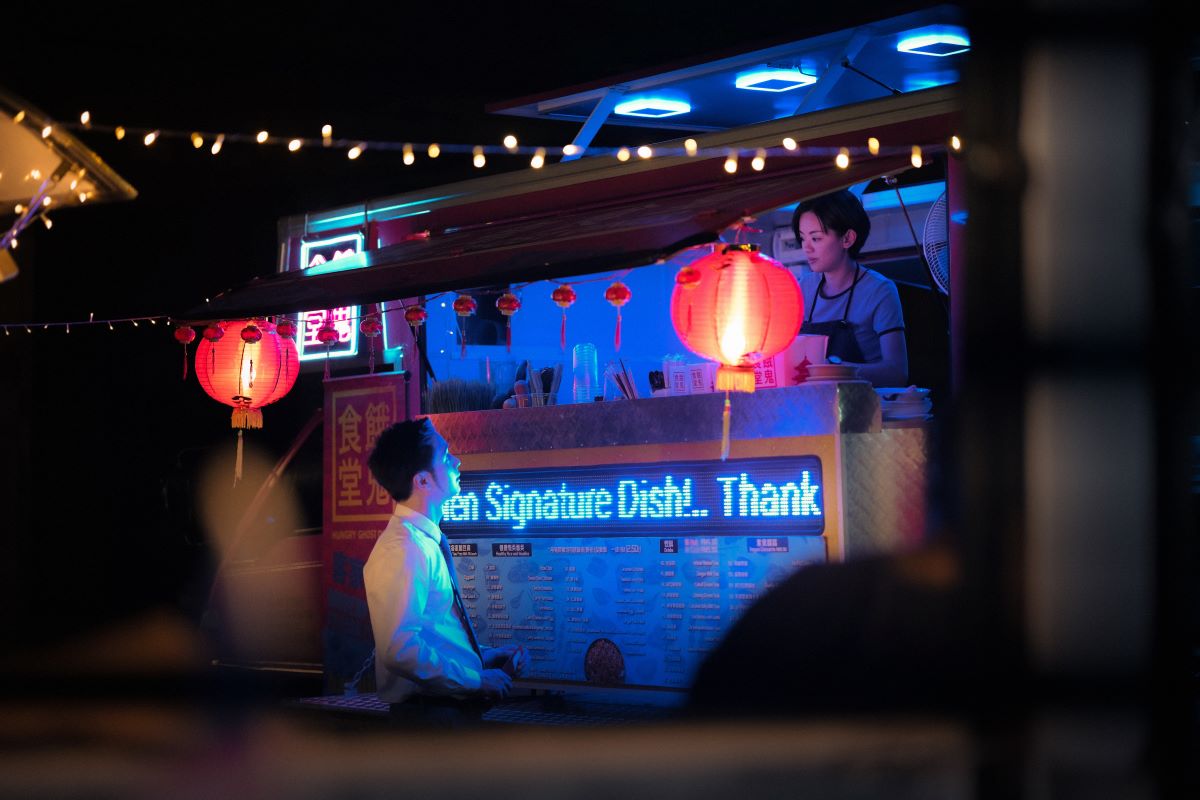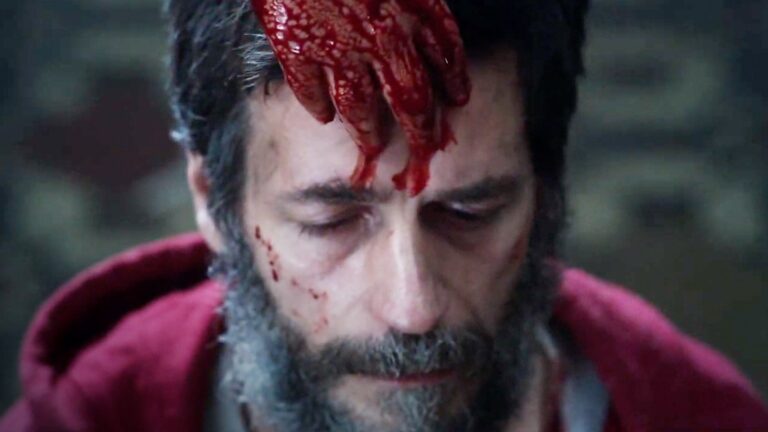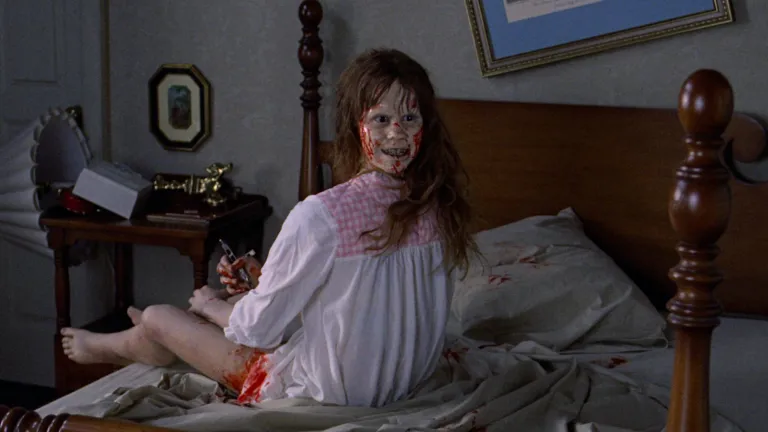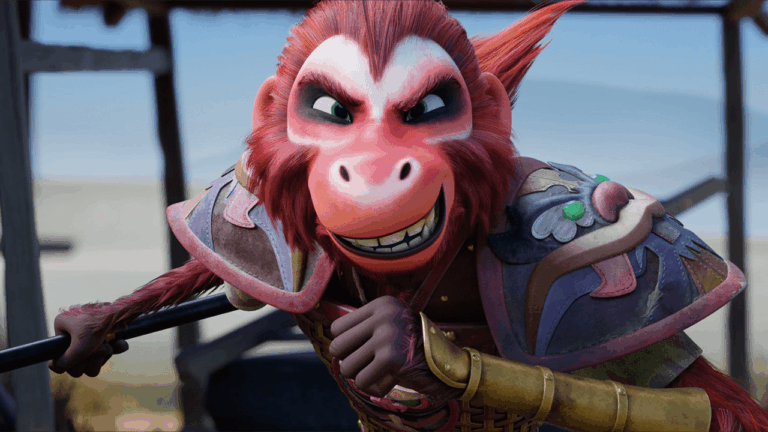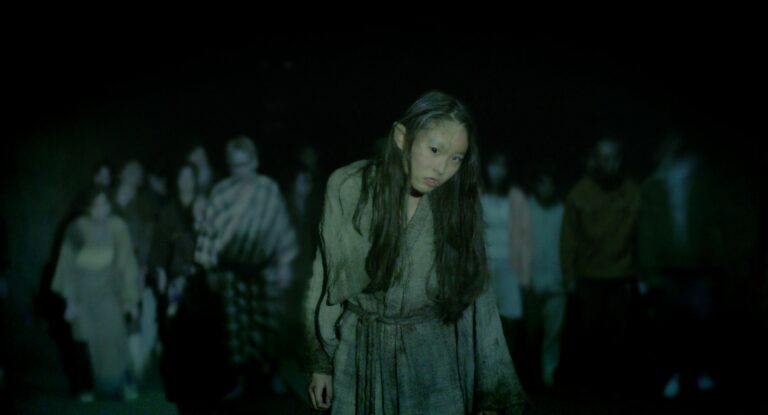Review: Hungry Ghost Diner (2023)
Hungry Ghost Diner (2023) is a Hakka-Chinese film that captures the customs of the Chinese diaspora in Malaysia. It explores the fractured relationship between a father and daughter, mended through the efforts of an uncle and the maternal grandparents. However, the film leaves many questions unanswered, often presenting events without explaining their outcomes. This can frustrate viewers, especially those unfamiliar with Chinese culture. Still, it serves as an entertaining, family-oriented drama with a focus on Chinese traditions, appealing more to those interested in cultural exploration than in deep storytelling or horror.
Storyline
The story follows Bonnie, who lost her mother as a child. During her mother’s funeral, held on the Hungry Ghost Festival, young Bonnie saw her mother’s spirit and followed it, prompting the adults to chase after her. As an adult, Bonnie runs a roadside food truck called “Hungry Ghost Diner.” She meets Kiet, a real estate agent trying to attract vendors to a new commercial complex, but his pitch fails to draw interest. Intrigued by her food truck’s name, Kiet tries to convince Bonnie to join his food court and revamp her truck, but she declines. Later, Bonnie’s uncle, Ah Kiu—her father’s younger brother—visits. They chat until Ah Kiu accidentally breaks a bowl. While Bonnie cleans up, he vanishes. In a dreamlike state, Bonnie finds herself back at her childhood home, where Ah Kiu gives her a house key. They discuss her strained relationship with her father, a rift that began years ago. Upon waking, Bonnie returns home to find movers clearing out the house. Her father reveals he sold it to pay debts. She also learns Ah Kiu has died, a fact her father hid from her. Bonnie visits Ah Kiu’s body in the coffin, and she and her father head to the city. During the trip, they argue, and Bonnie forces her father to walk home. At the bus station, she discovers a lockdown prevents city travel. Unwilling to return home, she tries a hotel, but it’s fully booked. She parks her truck nearby and slips back into a dreamlike world where her grandparents and Ah Kiu are alive. Ah Kiu takes her to a temple, where she reunites with her mother. Together, they bring her mother home for a meal. The next morning, Bonnie wakes beside her old house. She visits her mother’s neglected grave, decides to restore it, and returns to the temple. There, a monk arrives, and Bonnie asks how to save someone who’s become a hungry ghost. The monk has children perform a play about Kieu Lien saving her mother. Inspired, Bonnie and her father resolve to restore her mother’s grave, though her father’s response is lukewarm. Bonnie learns the lockdown has lifted, a fact her father withheld. In the city, she meets Kiet, now unemployed, and her business plans fall through. Bonnie sells her food truck and walks home. A woman sweeping the street, whom she met the previous day, drives her back in a van. At the cemetery, Bonnie finds her father. They return to their sold house, which they can’t enter without a key, but Bonnie uses the one from her dream to unlock it. Inside, they find her mother and embrace her tightly. The next morning, Bonnie wakes in the cemetery, her father at the house’s doorstep. Ultimately, Bonnie decides to reopen her diner at their old home.
Meaning of the Story
The film leaves many issues unresolved, like Bonnie’s decision to sell her food truck and restart the diner, shown in fleeting scenes without dialogue, forcing viewers to infer meaning. This open-ended approach is both a highlight and a flaw. I appreciate its subtlety, but many viewers dislike the mental effort required to piece together the vague conclusion, leaving some, including myself, slightly disappointed by the lack of clarity.
Reflecting on it, Hungry Ghost Diner feels like a calming film for those far from home, grappling with fractured family ties—whether with a father after losing a mother, or vice versa. It’s a Hakka story of reconciliation, woven with folk Taoist traditions and Hakka cuisine, particularly Hakka noodles. Though the culinary focus is brief, the noodles serve as a bridge between families. Bonnie’s mother, before her death, told her that her father made exceptional Hakka noodles, symbolizing a connection to mend their bond. The film emphasizes filial piety and familial healing, tying the father and daughter through their shared loss.
No Drama or Horror
The film lacks any significant drama or horror. As mentioned, it’s primarily a family drama. The ghosts are mere cultural motifs, not menacing figures. There’s no creepy makeup or flamboyant demonic imagery—just subtle, ghost-like behaviors, like the odd actions of strangers Bonnie encounters after stepping off a bus. The afterlife is stylized with red and orange hues, presented gently to avoid fear.
The horror is superficial, serving as a cultural marker rather than a scare tactic. The film’s soul lies in the populist Chinese traditions it portrays. It’s not for a broad audience but for those who cherish Chinese culture. If you’re drawn to horror but also enjoy Chinese traditions, this film may disappoint, as its horror elements are minimal.
Unclear Elements
Many aspects are left vague or glossed over, likely due to time constraints, drawing complaints from viewers. I won’t defend this, but I value the film’s focus on reconciling father and daughter after the mother’s early death. However, details like Ah Kiu’s death, the mother’s passing, the unexplained rift between Bonnie and her father, her move to the city, and the food truck’s sale—only clarified when Kiet hands Bonnie payment—are barely addressed. The reopening of the diner with her father and Kiet is shown fleetingly, leaving viewers, myself included, frustrated by the lack of resolution.
Ultimately, treat Hungry Ghost Diner (2023) as a story of healing. Don’t dwell on its ambiguities. For academic analysis, the open ending invites interpretation, but most casual viewers will find it underwhelming.
Acting
The acting in Hungry Ghost Diner (2023) is stiff, except for the lead actress, who is passable but not exceptional. Kiet’s actor stands out for his looks, not his skill, delivering a consistently flat performance. His exaggerated movements add little depth. Supporting actors fare worse, so a 3/10 rating feels generous.

